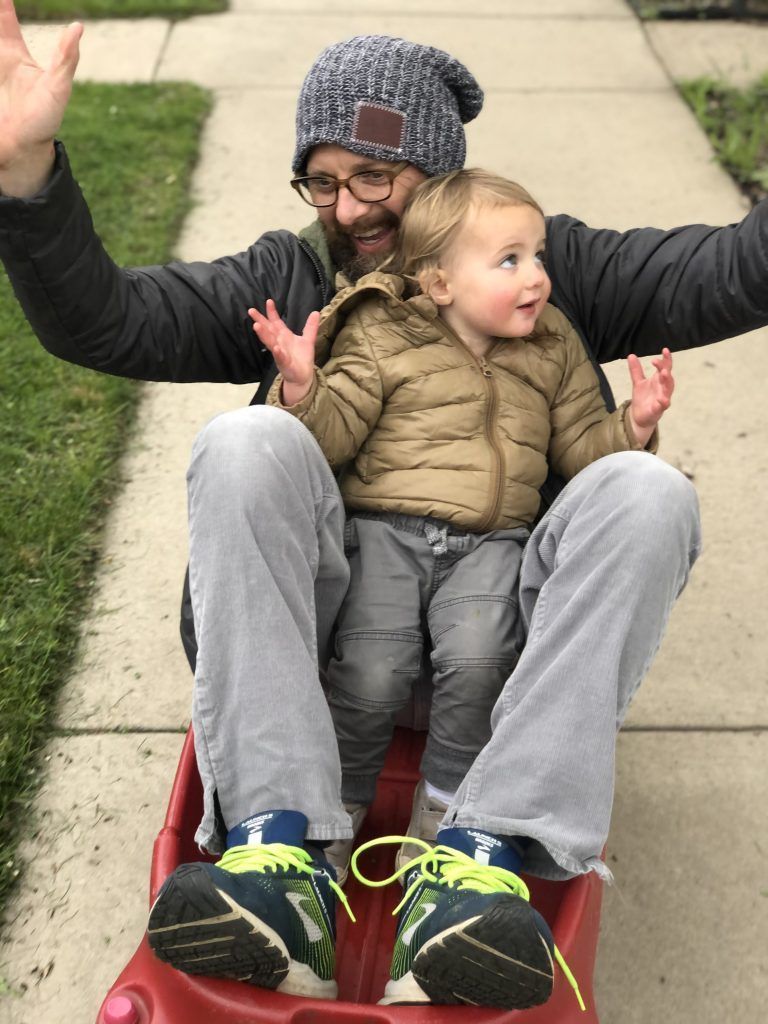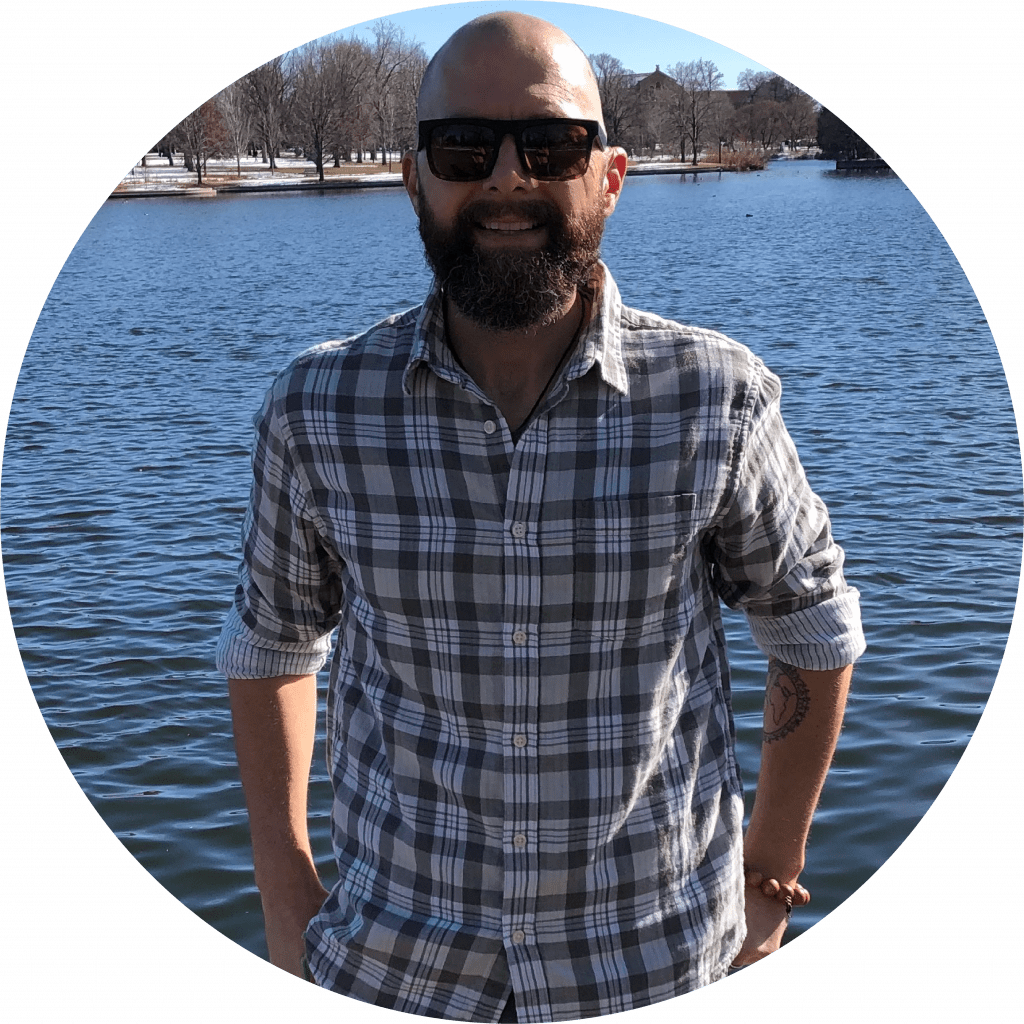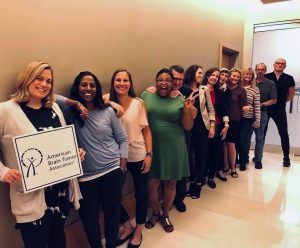Father, blogger, brain tumor survivor and patient advocate, Steve Archibald shares his post-treatment experience and how he became mentally strong to endure.
I find a striking comparison to how we humans are coded and trained into wanting bad things to end, as we have experienced this past year during a global pandemic. And more so, to have a return to “normalcy.” I remember being diagnosed with brain cancer, and I started to see and wonder how my life would change. Throughout this time, I knew “normal” was a thing of the past.
We have a season called fall, where the bright colored leaves drift from the roots on the branch and float to the ground. For the tree, this is “normal;” it happens every year. But for the leaf, this journey squashes “normal” as a return to normal is impossible. The leaf is left to turn to mulch and scatter in a million pieces. Life is the tree, and we are the leaves trying to weather the seasonal storms of our lives with little control.
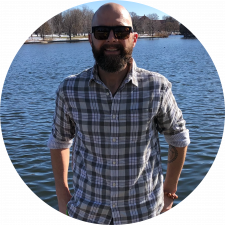
Instagram: @cancerofthebrainnotofthemind
Facebook: @steve.archibald.372
Challenging "Normal" with a Brain Cancer Diagnosis
We all have our own version of what normal means. When our “normal” is challenged or damaged, we yearn for its return even if our normal was not something we enjoyed. My son’s idea of normal is sleeping in his bed, playing with his toys, and hanging with his mom and dad. If just one of those things changes, his sense of normalcy is disrupted, and he yearns for it to return.
We are programmed to have some sort of normal routine. When my normal was changed due to my diagnosis, it was shattering. But as my surgery and treatment began and progressed, I started to forget what normal was like. I started to forget how I felt on a daily basis when someone would ask me if I feel different taking seizure medication. I want to say “yes,” but to be honest, almost ten years have passed and this decade has become normal. Am I more tired, irritable, dull? Maybe, but I cannot confirm that for sure as I simply don’t remember my prior “normal.”
I think this is what happens when we go through life, and while we might even take stock in our daily emotions, I would be surprised if most people could say, “I felt great on April 10, 2012.” Ask yourself if you remember how you felt a year or two ago compared to now, and I bet it is not an easy answer.
Unable to Continue Chemotherapy Treatment
As treatment progressed in the summer of 2012, I felt more or less the same. Some days were not great, while others seemed somewhat normal. It was a shock when I went into the cancer center in August for my blood work and the news that my neutrophil counts (a test result that shows my body’s ability to fight disease) had plummeted. I felt okay, but was I okay? Who knows, it was hard to tell if I was feeling the way I “should” be feeling because each day was as murky as the next.
When I got the news about my blood counts, I was devastated to learn that I needed to pause chemotherapy. I was focused on continuing chemotherapy for a full calendar year, and here I was, halfway through and my body was telling me, “NO MORE!” I wanted to continue as I believed this was the only path to survival.
Since my surgery, I was told I needed chemotherapy and radiation to give myself the best chance for survival and now I was being told I needed to stop chemotherapy or it would kill me. Damned if you do, damned if you don’t.
As the news was breaking my normal routine, I tried everything I could to increase my white blood cells through nutrition and hope. A week later, I returned to the cancer center and went through the same process, only to have the same results. I waited another week and still, my body was telling me, “enough is enough.” I returned once again and my blood counts remained at a dangerous level, where if I looked at a germ, I could be in trouble.
I met with my neuro-oncology team and my doctor told me that there would be no more blood tests. There would be no more treatment. There would be nothing more, but to wait and see. With my head down, I walked out of the treatment center as if I was Charlie Brown and Lucy just pulled the football from under my foot.
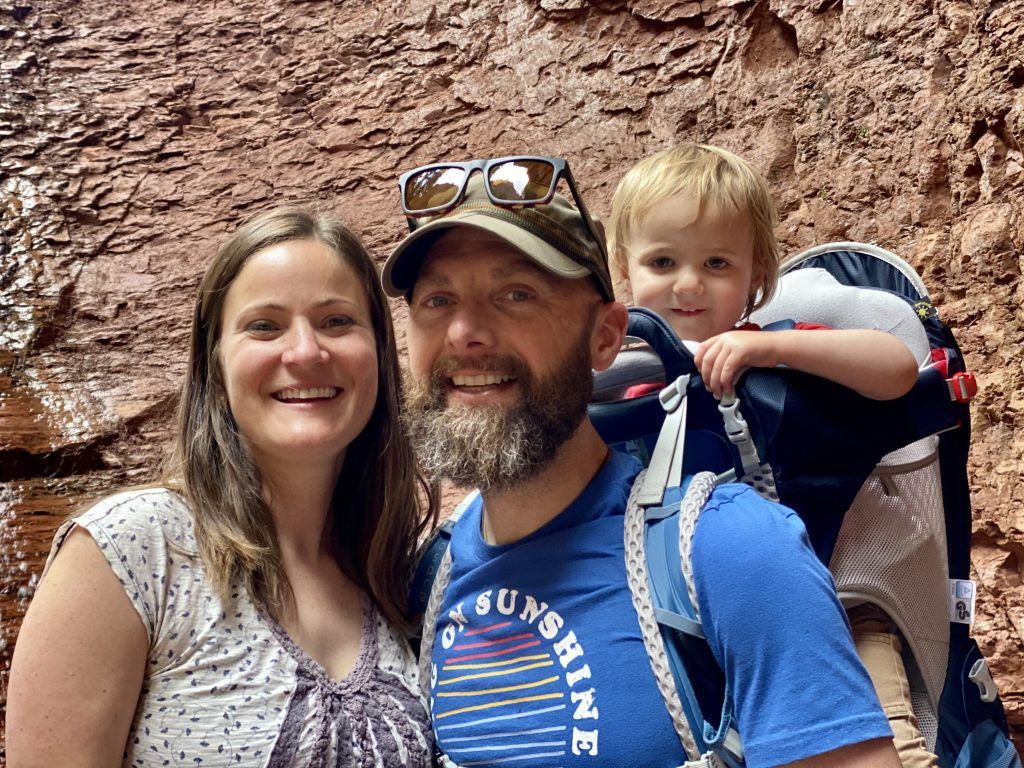
Surviving Brain Cancer Treatment
“Done with treatment” swirled through my mind over and over again like blades of a fan. I was now considered in “post-treatment” and some would then consider me a “survivor.” The only thing I found was that I survived treatment. But post-treatment is a different beast. While I needed to be mentally tough during treatment, the direct effects were on my body – somewhat more than my mind.
Post-treatment is a constant mind game where the side effects from cancer, surgery, and treatment start to show in various ways and the only thing you can really do is to be mentally strong in order to endure. It goes back to the idea that what saves you just might end up killing you or at least impact you to a high degree.
Post-treatment is a constant mind game where the side effects from cancer, surgery and treatment start to show in various ways and the only thing you can really do is to be mentally strong in order to endure.
Beyond Wanting More Chemo
My first side effect was getting beyond the idea of wanting more chemotherapy. No one should want chemotherapy, let alone pine for it. I found myself doing everything to get more of it. We have such powerful minds that we can convince ourselves into just about anything, including the idea that chemotherapy would save me, and that stopping it prior to the final cycle would be my doom. I learned at the time of diagnosis that while it’s good to have a plan, but if you aren’t flexible with the path you envision, it will narrow into nothingness.
My path lost direction. There were no clear trail signs as to where to go. There were no signs pointing me towards chemotherapy, bloodwork, and doctor’s visits. They disappeared into the undergrowth. I stood still, gazing around and spinning in three-hundred and sixty degrees looking for a familiar point, but my spinning just made me dizzy and somehow, more lost.
At the Cross Roads
That August was the longest month of my life. It was filled with sorrow, panic, fear, and uncertainty. I went through it all in stages only to realize that this chapter was done. I looked back on the last year of double vision and mind-squashing headaches to an open craniotomy, radiation, and chemotherapy. The details of the year were fresh in my mind, and I knew I had a choice to make: to look back in dismay or to honor what I had been through with gratitude.
The choice was not easy. I would oscillate between wondering if “it” was worth it, and then focus on the fact that I was still alive. In order to make the most sense out of life, I looked at how I felt in September 2011, and how I felt in September 2012 and the differences were massive. My double-vision was gone and my headaches were not ever-present. They were there, but they didn’t feel like a 24-hour cycle.
On the Path to Progress
Progress allowed me to take a breath I had not taken in more than a year. Progress turned into hope, and hope convinced me “it” was worth it, if for no other reason than I was alive. I had a new opportunity to direct myself on a new path. This path was not created, because I had yet to forge it. That opportunity to create this new direction was all I ever wanted in going through this past year.
So, the question lingering in my mind was, “what’s next?” It was my job to figure that out. After weeks and months of fearing MRIs, I got tired of living for the next one. I was not living each day as I was during treatment, and I needed to find a way back to gratitude. The side effects of radiation and chemotherapy were starting to announce themselves, which made finding gratitude more difficult. I had to learn to embrace these unwanted feelings, emotions, and physical reactions and it always ended with the thought that I am still here. That was it. I am still here.
Post-treatment is not when treatment stops. It is a continuum of life after treatment ends.
Finding Gratitude and Direction
No one has a perfect life, no matter what we think; everyone is going through something, and I was just going through my thing, but I am still here to go through it. We all need help to understand the balance of what we have and what we want. Whether you seek professional help with mental health questions, practice yoga or meditation, adapt your diet to be more nutritious, run, walk, swim, or take up sky diving. This is the beauty that you can create. Doors close and open; it is our jobs to find the handle and turn it.
I have brain cancer. I have gone through surgery and treatment. The tough part was this void of direction and it took me a while. I actually think I am still on my path to understanding it all. Maybe I will be on this path forever, but I find solace in the thought that I am walking my own path. It may deviate at points. There will likely be plenty of rocks and roots to trip over, but it is my path. I can adventure towards unknown things in the distance to explore during this post-treatment life knowing there will be hazards to manage.
My past helps me to realize I have managed many hazards, and it gives me hope that I can take on the challenges ahead. Post-treatment is not when treatment stops. It is a continuum of life after treatment ends. I will be in post-treatment for the rest of my life unless there are future treatments needed, so it is important to embrace this “normal” to not just be a survivor, but a thriver. After all, what is the point of treatment just to survive when there is so much to live for.
